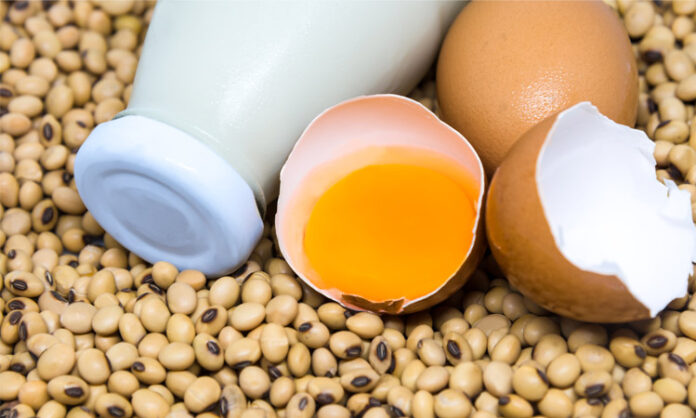Does lecithin help lose belly fat and improve heart health? This supplement can lower cholesterol, raise HDL cholesterol, lower bad cholesterol, and reduce blood pressure. The supplement is best taken on an empty stomach, and 30 minutes later you can eat a meal. The key to sunflower lecithin and weight loss is that it works by increasing the amount of HDL cholesterol in the body.
Sunflower lecithin
Sunflower lecithin is a fat-like substance that is a natural component of human cells. It is obtained from a variety of sources, including plant and animal products. Common sources include sunflowers and soybeans. Sunflower lecithin acts as an emulsifier, holding two different liquids together. For example, if you want to combine oil and vinegar, they would separate unless you use an emulsifier.
Sunflower lecithin is also beneficial for the liver. It promotes healthy liver function and reduces the risk of disease by fighting inflammation. It also helps the body absorb nutrients from food and is thought to reduce the risk of gallstones. You can easily purchase this supplement at a local health food store or online. It is available in different forms, such as in the form of capsules that contain about 2,400 milligrams per day.
Sunflower lecithin also promotes good cholesterol levels, which help reduce the risk of cardiovascular disease and other chronic ailments. Furthermore, it is thought to promote weight loss by reducing fat storage in the arteries. It is also rich in choline, which helps regulate vital bodily functions. Choline is also a key component in memory and learning.
Despite its benefits, there are a few potential risks associated with it. For example, some people may experience constipation, abdominal discomfort, and even increased blood pressure. Additionally, many weight loss pills contain high levels of caffeine, which may leave you high and dry at night. Therefore, you should be aware of the side effects before buying a supplement.
Other benefits of sunflower lecithin include improved skin health. Supplementation with this substance helps reduce the viscosity of milk ducts in women who breastfeed. It also reduces the risk of mastitis, an infection of the breast tissue. Those who suffer from mastitis should consult a physician before taking lecithin supplements.
Sunflower lecithin is a more natural and non-GMO alternative than soy lecithin. Soy lecithin contains allergens and may cause a reaction for people with a soy allergy. Because sunflower lecithin is a plant-based ingredient, it is an easy substitution for soy lecithin.
Soy lecithin
Soy lecithin is one ingredient found in soy foods. It is known to reduce bad cholesterol levels and can also increase good cholesterol. In a study of 65 people, soy lecithin reduced LDL cholesterol levels and increased HDL cholesterol. Higher levels of HDL cholesterol are thought to help prevent heart disease. However, further human trials will be needed to determine whether soy lecithin is beneficial for reducing cholesterol levels.
Although soy lecithin has many potential benefits, it may cause some side effects in sensitive people. Because soy lecithin is derived from genetically modified soy, it is best avoided by individuals with a severe soy allergy. But the risk is minimal for people with a mild reactivity to soy. Lecithin contains immunoglobulin E (IgE)-binding proteins that bind to the antibodies of the immune system. Therefore, people with severe soy allergies should avoid soy lecithin and other products containing soy.
Lecithin is a phospholipid found in many plants. It can be consumed in the form of supplements or powders. They can be sprinkled over vegetables or mixed into smoothies, shakes, and yogurts. It is also used in commercial products such as peanut butter, ice cream, and bread.
Soy lecithin can help reduce bad LDL cholesterol and increase HDL cholesterol. This is good news for women suffering from cardiovascular diseases, as less LDL cholesterol means fewer fatty plaques clogging arteries. Lecithin can also help lactating women avoid clogged milk ducts, which are painful and can result in infection and fever.
Soy lecithin is a rich source of choline, a phospholipid found in the cell membranes. Choline helps maintain cell membrane fluidity. When a person lacks choline, cell membranes thicken and block vital nutrients from entering the cell.
It is known to aid the body in losing belly fat and promote the production of ketone bodies, which are used as an energy source by the body. Lecithin supplements are also used for many medical conditions, including high cholesterol and digestive disorders.
Soy bean lecithin
Soy lecithin is a phospholipid found in soybeans that reduces LDL and cholesterol levels. It is also used to reduce heart disease and inflammation. It is derived from soybeans, which are rich sources of isoflavones. Soy lecithin is generally a safe supplement for people with no or minimal soy allergies. However, people with a high-level soy allergy should exercise caution when taking soy lecithin supplements.
The potential benefits of soy lecithin supplements are numerous, but there are a number of side effects to keep in mind. First of all, soy lecithin is extracted from soybeans by using the solvent hexane. This chemical is often used for extracting oil from seeds and is also used as a solvent in the printing industry. Then, this mixture is spun rapidly to separate the lecithin.
Lecithin is an important part of many foods. It provides texture to foods and improves shelf life. It also plays a role in lipid metabolism. This means that it can help lower cholesterol naturally. Soy lecithin works by inhibiting the formation of LDL cholesterol and promoting the production of HDL cholesterol in the liver. A recent study conducted on thirty volunteers found that soy lecithin increased HDL levels and decreased LDL levels in healthy participants.
The high levels of estrogen and phytoestrogens in soybeans are linked to several health problems. For example, high estrogen levels in soy may lead to infertility, irregular menstruation, and breast cancer. Also, consuming too much soy lecithin can cause hormonal imbalance. Therefore, it is recommended that you limit soy lecithin and limit your intake of foods containing GMOs.
Lecithin is naturally present in many foods and is a valuable supplement for those who want to lose belly fat. You can sprinkle lecithin on your food, mix it with cereals, or drink lecithin shakes. It is also found in a wide range of products, including peanut butter and bread.
Lecithin supplements are made from soy and make up 90 percent of lecithin products. They help the body break down fats and cholesterol, so they can be converted into energy or excreted through sweat glands. Supplements can be taken in the form of gel capsules or pills.
Natural sources of lecithin
Natural sources of lecithin can be helpful in the fight against belly fat. This compound is an emulsifier that helps the body break down fats and distribute them evenly. It also helps the body process fats by lowering cholesterol levels and speeding up fat metabolism.
This substance is essential to the functioning of the liver and is found in various foods. In fact, your body produces it naturally. If you’re deficient in lecithin, your doctor can prescribe it for you. Otherwise, you should focus on getting enough lecithin through your diet.
Natural sources of lecithin are found in foods such as soy and sunflower. These sources are non-GMO and contain no hexane or acetate. Sunflower lecithin is often preferred over other sources of lecithin because it’s less likely to cause allergic reactions.
Lecithin from sunflower seeds is also helpful in improving skin health and improving lung function. It also helps your liver function and boosts the production of serotonin, a hormone involved in mood regulation. Sunflower lecithin is also good for lowering blood pressure and boosting your immune system.
Lecithin is naturally found in many foods and can also be taken as a dietary supplement. It can be sprinkled on food or blended into cereals, yogurts, and shakes. It can also be extracted from soy and egg yolks. A study published in Cholesterol published in 2010 found that taking 500 mg of soy lecithin daily for two months significantly lowered cholesterol levels. This discovery led to further studies.
Lecithin is a good source of choline, which helps the body produce the neurotransmitter acetylcholine. Acetylcholine is important for brain function and is found in the brain and at neuromuscular junctions. If the body does not have enough of this important neurotransmitter, it may lead to anxiety and fatigue.
Taking lecithin may also help you with your memory and cognition. According to research from the American Journal of Clinical Nutrition, higher intakes of lecithin may help with memory problems and improve overall brain function. Lecithin supplements may also help with the digestion process.












